“Focus and simplicity… once you get there, you can move mountains.”
The biggest enemy of productivity is losing focus.
Social media notifications, constant meetings, colleagues who interrupt through phone calls, or any other distraction can lower your performance. These distractions waste your time and energy, not to mention affect your work.
So, how do you avoid such distractions and improve concentration?

By improving MENTAL FOCUS.
Whether you are trying to read a book, finish your homework or complete a project, your ability to focus determines your success or failure.
Thus, it is essential to learn how to focus to achieve goals and perform well at work, and across various situations.
This article reveals six effective tips to teach you how to focus on yourself and improve your concentration.
6 Tips To Improve Focus
Here are seven effective tips to help you improve your mental focus:
1. Ignore Distractions
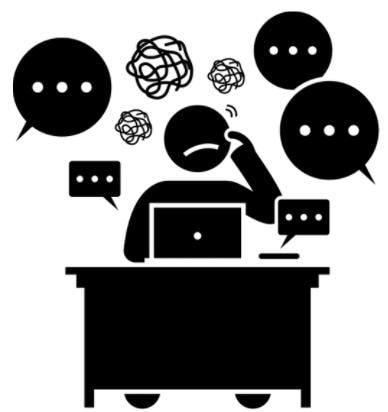
You might not be surprised to hear this one, but people often underestimate how easy it is to be distracted.
According to a study by Microsoft, the average attention span has decreased from 12 seconds since 2000 to 8 seconds now – dropping nearly 25% in just a few years! [Source: BBC]
Many distractions prevent people from concentrating on the task at hand, which might come in the form of a phone call or perhaps a co-worker who constantly drops by your cubicle to chat.
Letting go and ignoring these distractions isn’t always too easy; While some people might say that it is just as simple as turning off the television or radio, it is probably more challenging than you think.
How To Avoid Distraction?
Environmental Distractions
1. Silent your phone or put it away
2. Listen to music
3. Find a dedicated workspace
4. Use noise cancellation devices
Mental Distractions
If the distraction is not environmental but mental, you need to identify the distraction and find a solution to mitigate or eliminate it.
For example: If you find it hard to focus on accomplishing your goals, find out why; it is a lack of motivation, lack of time, or lack of resources?
If it’s a lack of motivation, find a solution to push yourself to focus on your goals. You can start journaling, goal tracking, or visual manifestation.
You can also use tools like PDFelement to get free templates as they have multiple templates for goal planning such as daily goals planner, travel goal, work goals, etc.
Wondershare PDFelement Pro DC
Simplify your Workflow with the PDFelement Cloud.
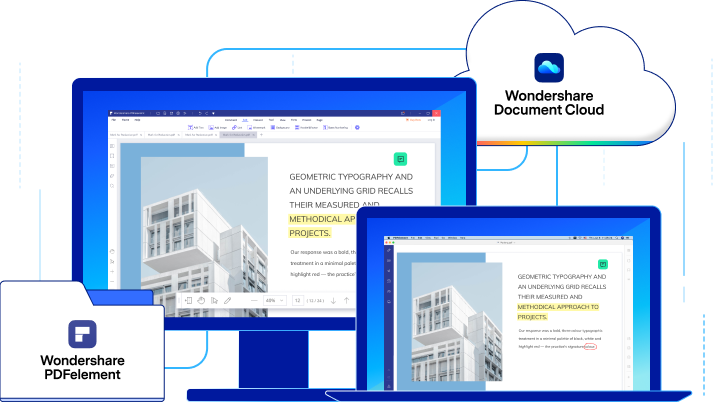
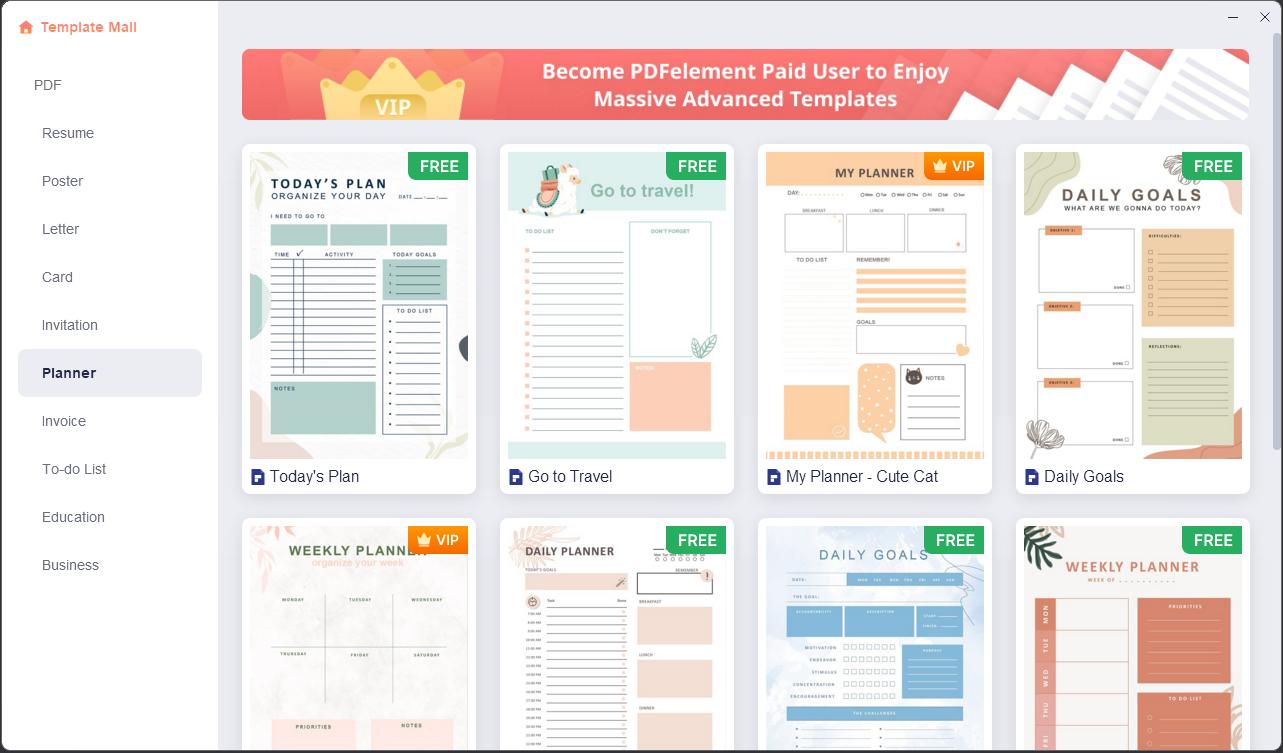
Wondershare PDFelement Pro DC
Simplify your Workflow with the PDFelement Cloud.

Other ways of blocking mental distractions include:
-
Creating a to-do list
-
Setting daily goals and revisiting them throughout the day
-
Not multitasking
2. Focus On One Thing At A Time

For some people, multitasking is a great way to get a lot done quickly, but it’s not the case for everyone.
It turns out that instead, people are pretty bad at multitasking as doing multiple tasks at once can cut down on quality and productivity.
Thus, making it quite hard for them to focus on the details of the work or project.
All you have to do is manage your time by organizing your tasks. Paul Graham (investor, entrepreneur, and Y Combinator co-founder) in “Maker’s Schedule, Manager’s Schedule,” states:
“A single meeting can blow [an entire day] by breaking it into two pieces, each too small to do anything hard in.” [Source: Harvard Business Review]
So, don’t push yourself to multitask. Dedicate time to each task and not just a few distracted minutes squeezed within a busy schedule. Instead, give your full attention to one thing at a time, allowing you to work better on that one thing.
3. Be Present
Being present is also very important to recapture the mental focus you have lost.
By being present, you can stay engaged in the present and keep your attention sharp. You will focus your mental resources on one thing that matters at that specific point in time.
However, it may not be the easiest of tasks.
A study found that people spend almost half of their time (46.7%) thinking about something other than what they are actually doing. [Source: The Guardian]
So, it will take some time but work on learning to be present.
How To Be Present In The Moment? |
||
| 1 | Focus on the task happening now. | |
| 2 | Pay attention to the smallest of details. | |
| 3 | Don’t worry about future tasks or projects. | |
| 4 | Try stress management and anxiety relief exercises. | |
| 5 | Practice mindfulness through meditation. (more on this later) | |
Moreover, enjoying and living the moment can relieve the stress and allow your mind to focus. According to the psychologists Matthew A. Killingsworth and Daniel T. Gilbert of Harvard University:
“A human mind is a wandering mind, and a wandering mind is an unhappy mind. The ability to think about what is not happening is a cognitive achievement that comes at an emotional cost.”
You can’t change what is around you or what has happened, but what you do today can help you avoid repeating past mistakes. You will have a path for a more prosperous future with everything you have ever wanted.
4. Practice Mindfulness
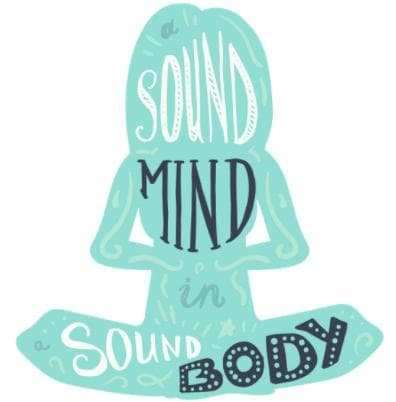
Practicing mindfulness in today’s hyperactive digital world is more important than ever. The constant use of digital devices has resulted in an exponential increase in stress, anxiety, depression, and other mental health disorders.
All of which also impact our mental focus and decrease concentration levels.
Emma Seppälä, Stanford psychologist and author of The Happiness Track, said:
“By constantly engaging our stress response [when we check our phones], we ironically are impairing the very cognitive abilities — like memory and attention — that we so desperately need.” [Source: Harvard]
Moreover, according to a survey by Mercer, 61% of people say that stress reduces their concentration.
Mindfulness is an effective way to manage stress and increase cognitive performance. A study found that meditation and mindfulness training improved cognition, leading to a better mood, increased verbal and non-verbal reasoning, and improved capability for manipulating mental information.
How To Practice Mindfulness? |
||
| 1 | Learn how to meditate | |
| 2 | Try easy deep breathing exercises | |
| 3 | Start journaling your thoughts | |
| 4 | Have some green time (Study shows that enriching an office with plants increases workers’ productivity and concentration levels by 15%). | |
5. Take Short Breaks
It is not good to keep thinking about one thing 24/7. A study shows that the most productive people take a 17-minute break after working for 52 minutes.
So, divert your mind and pay attention to something unrelated to the task at hand.
The University of Illinois at Urbana Champaign research revealed that brief and rare mental “breaks” keep you focused.
Thus, taking a break is essential to keep the mind relaxed because all work and no play make Jack a dull boy.
Proven Benefits Of Taking Short Breaks:
-
Increased productivity:Taking breaks sounds counterintuitive when talking about boosting productivity, but it’s one of the most effective strategies to do so. You gain focus and energy when you step away from work.
-
Improved mental well-being:Our brain needs time to recharge. Overworking can cause mental stress and physical distress. Taking some time for yourself helps you release stress, rest, and improve your well-being.
-
Creativity boost:When you look at the same thing all day, it can be hard to become inspired and get the creative juices flowing. Taking a break gives you a fresh perspective and allows you to develop new ideas and solutions.
-
More time for healthy habits:Taking breaks gives you the time to practice healthy habits such as exercise, meditation, reading, or engaging in any self-care activity.
6. Train Your Brain
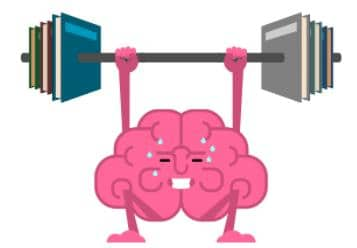
Improving your brain health is one of the best things to improve your concentration, focus, and memory.
Dr. Morris says:
“You can’t improve memory if you don’t work at it… The more time you devote to engaging your brain, the more it benefits.” [Source: Harvard Health]
Moreover, research shows extensive evidence that brain-training interventions improve focus and performance.
So, invest time and resources to train your brain to boost cognitive performance.
How To Improve Brain Health?
ry problem-solving exercises and brain training methods such as:
-
Puzzles, quizzes, and crosswords
-
Playing video games
-
Physical exercise and movement
-
Learn new skills and tools
For example: You can try learning how to use Wondershare PDFelement Cloud to manage, share and collaborate documents online quickly and easily.
Wondershare PDFelement Pro DC
Simplify your Workflow with the PDFelement Cloud.

Practice yoga and meditation
Columbia University Medical Center research shows that meditation can improve brain structure and function to reduce stress and increase focus, concentration, and memory.
Eat a healthy diet:

Eat a balanced diet with brain-boosting foods like leafy greens, whole grains, fish, and mushrooms.
Summing Up
Don’t expect to build your mental focus overnight because even professionals take time to strengthen their concentration skills. It is not an easy thing to do and requires a lot of strategic planning and motivation.
Use the tips mentioned in this article to improve your mental focus and boost your performance!



